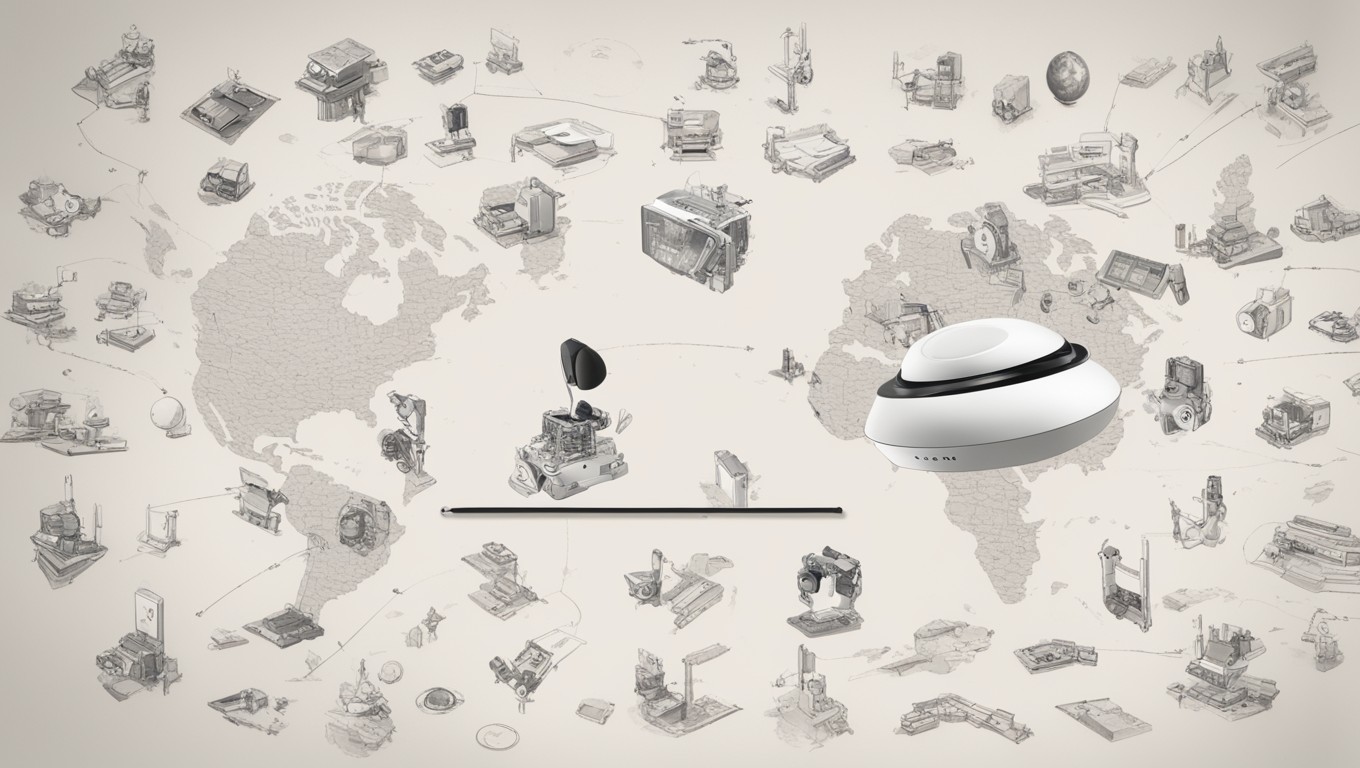Boosting Taiwan’s Exports: Tech & AI Devices Fuel Growth
Taiwan, known for its expertise in hi-tech gear, is experiencing a surge in its export market. In December, exports from the island grew for a second consecutive month, expanding by 11.8% to reach $39.94 billion. This growth can be attributed to the increased demand for devices equipped with generative artificial intelligence (AI) chips. After a 13-month decline, exports began showing signs of recovery in September, only to slide again in October. However, the design and manufacture of semiconductor chips for generative pre-trained transformer commands have sparked a new wave of global smartphone and PC sales.
The export growth in December can be attributed to improved shipments of electronics and information and communication products, according to Jeemin Bang, associate economist at Moody’s Analytics. Bang also noted that global semiconductor sales have increased in recent months, driven by the demand for AI-related chips. With its leading position in cutting-edge semiconductor production, Taiwan stands to benefit from this demand. The country is the largest seller of chips that power PCs, phones, servers, and modern vehicles, with the tech industry making up a significant portion of its economy.
Taiwanese companies such as MediaTek, a smartphone chip designer, and Taiwan Semiconductor Manufacturing Company (TSMC), the world’s largest contract chip maker, have been investing in AI capabilities. MediaTek has already incorporated AI features in some of its processors, while TSMC is ramping up production of chips designed for AI applications. Eden Chung, semiconductor research analyst at TrendForce, emphasized that such plans exist across companies, and consumers' reactions in 2024 will be critical to gauge the success of these initiatives.
Market research firm Canalys predicts that almost one in five PCs shipped globally this year will be “AI-capable”, with that number expected to rise to three in five by 2027. This projection is based on new user experiences and consumer desires to replace outdated machines. Acer, the world’s fifth-largest vendor of PCs, has already experienced a 3.5% year-on-year increase in consolidated revenues in December, thanks to its focus on AI-powered processors.
While global shipments of electronic components from Taiwan fell by just 1.2% in December compared to the previous year, overall electronic component exports witnessed a decline of 10.7% in 2023. Semiconductors, however, only experienced a slight decrease of 0.8% in December. On the other hand, shipments of information, communications, and audiovisual products saw a significant jump of nearly 95% year-on-year to reach $10.1 billion.
Taiwan’s largest export market in December was mainland China and Hong Kong combined, totaling $13.36 billion. Although there was a 6.4% year-on-year decline in exports to this region, it was an improvement from the 18.1% decrease witnessed throughout 2023. Meanwhile, exports to the United States grew by a remarkable 49.7% in December to reach $8.49 billion, and Europe experienced a 16% increase in shipments compared to the same period in the previous year.
The National Development Commission of Taiwan has expressed expectations for further improvement in 2024, highlighting a “transition to growth” for exports in November. This positive sentiment aligns with HSBC’s projection that global trade will “rebound modestly” this year. The bank’s economists forecast a 1.8% growth in world exports of goods and services in 2024, with a further increase of 3.4% anticipated for the following year.
Despite the optimistic outlook, analysts anticipate a gradual recovery for Taiwanese exports. Moody’s expects the recovery to proceed at a slow pace until at least mid-2024. Hu Jin-li, a professor at National Yang Ming Chiao Tung University, emphasized that while AI-optimized hardware can boost shipments of tech gear, weak consumption in Europe and mainland China poses a challenge. The situation calls for continuous efforts to navigate these markets effectively.
As Taiwan continues to lead the charge in hi-tech exports, the growth fueled by tech and AI devices is expected to drive the country’s economy forward. With advancements in semiconductor technology and increasing demand for AI-capable products, Taiwan’s position as a global leader in the tech industry looks set to strengthen in the coming years.




Use the share button below if you liked it.